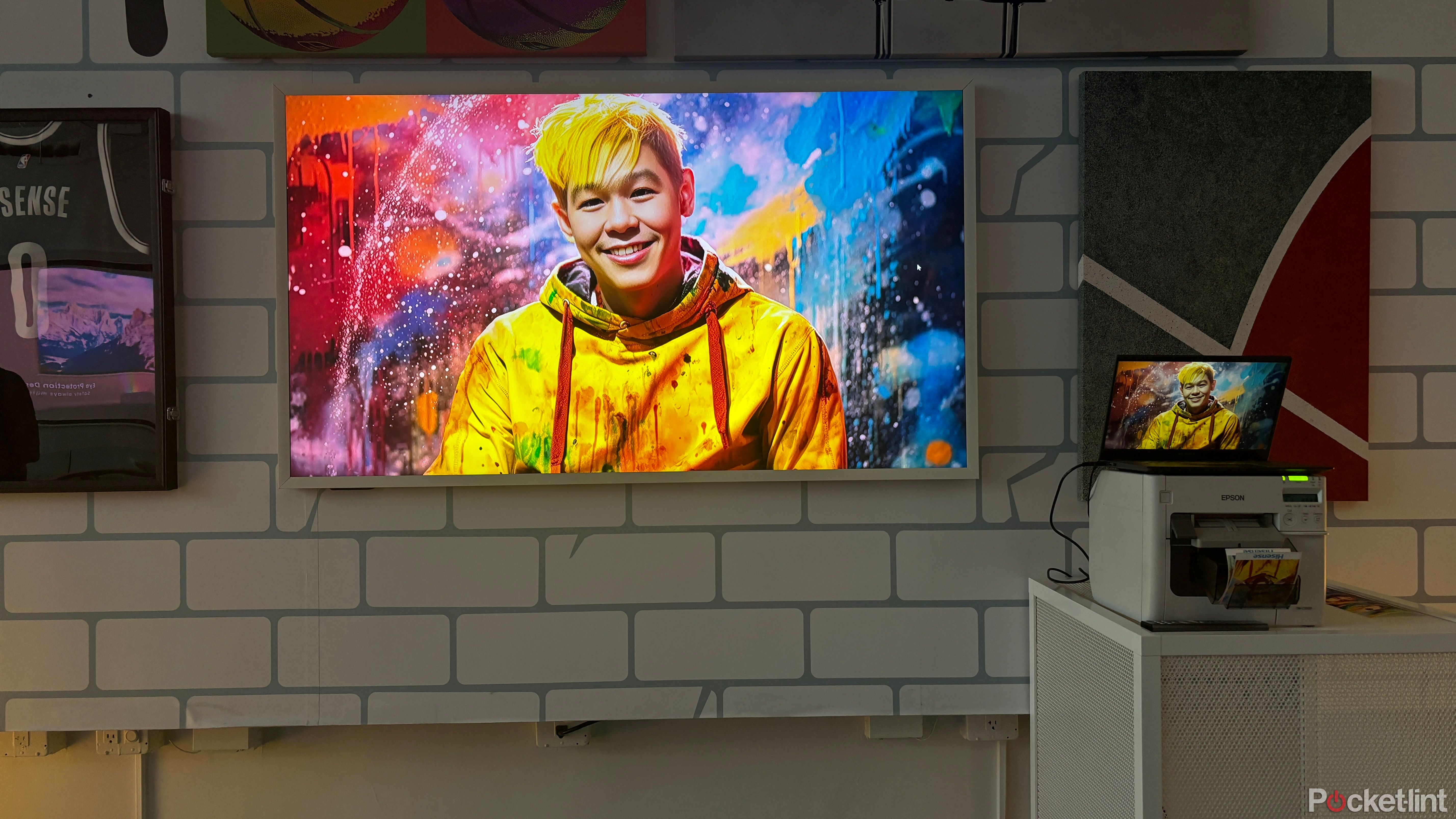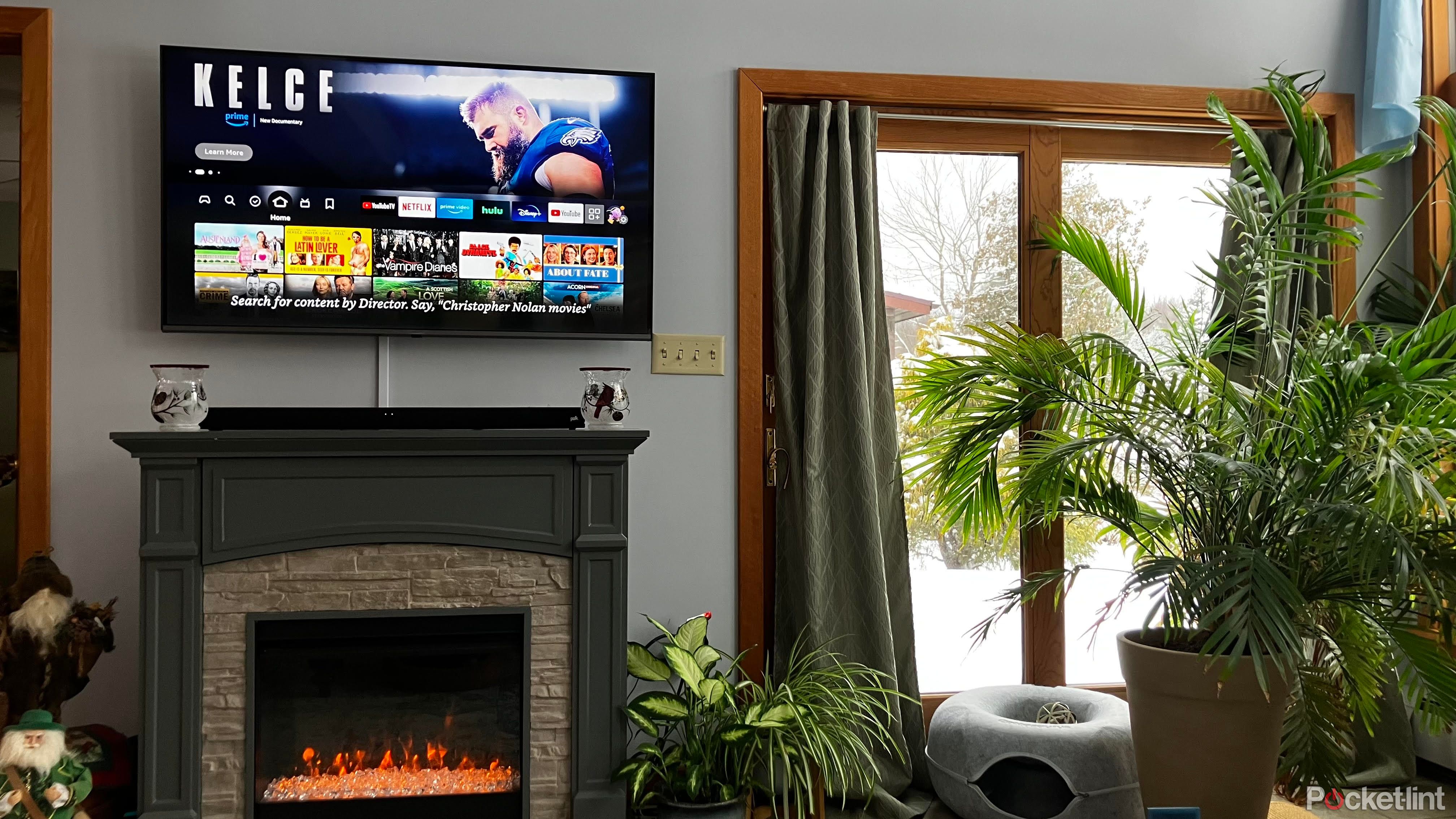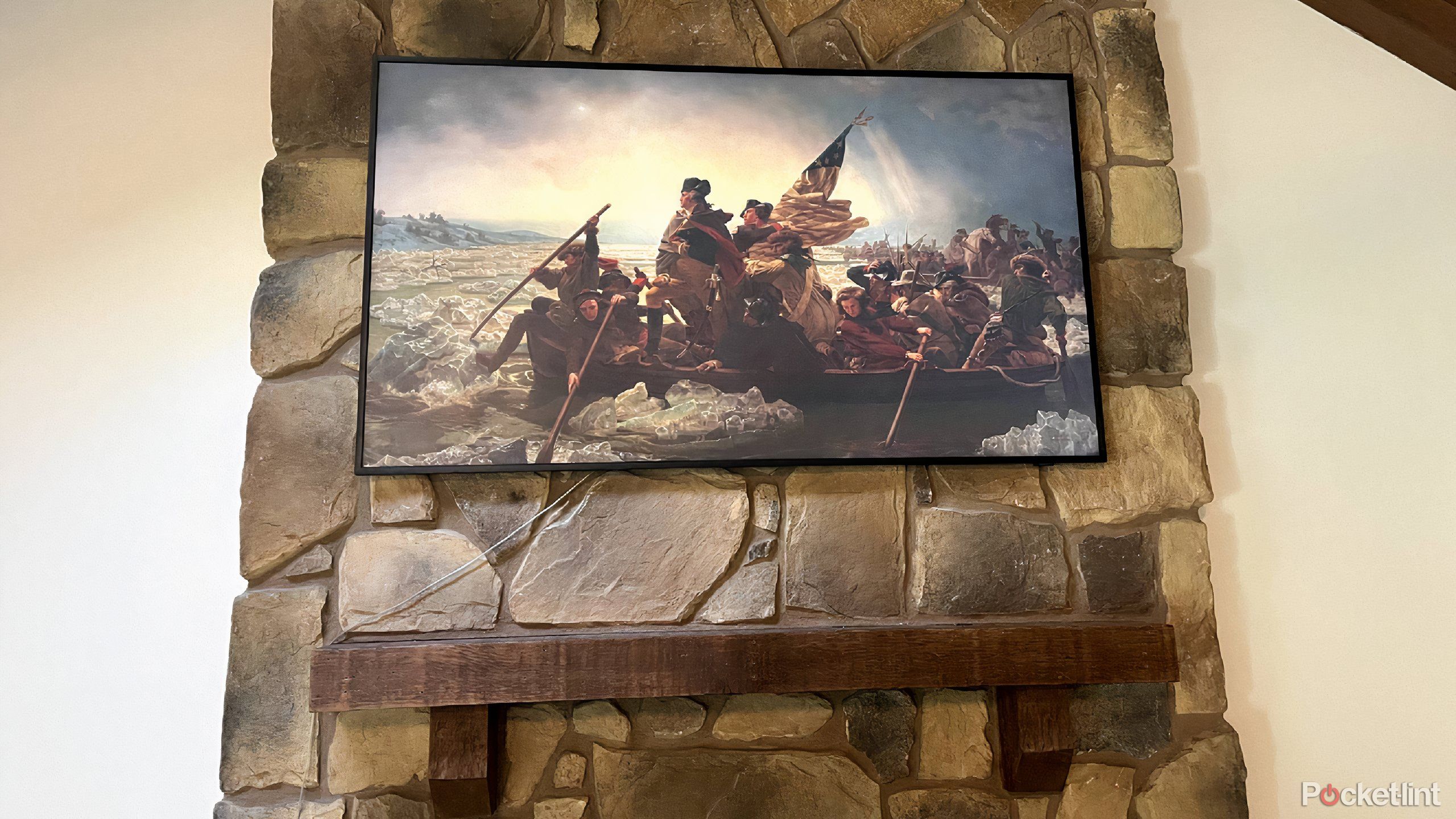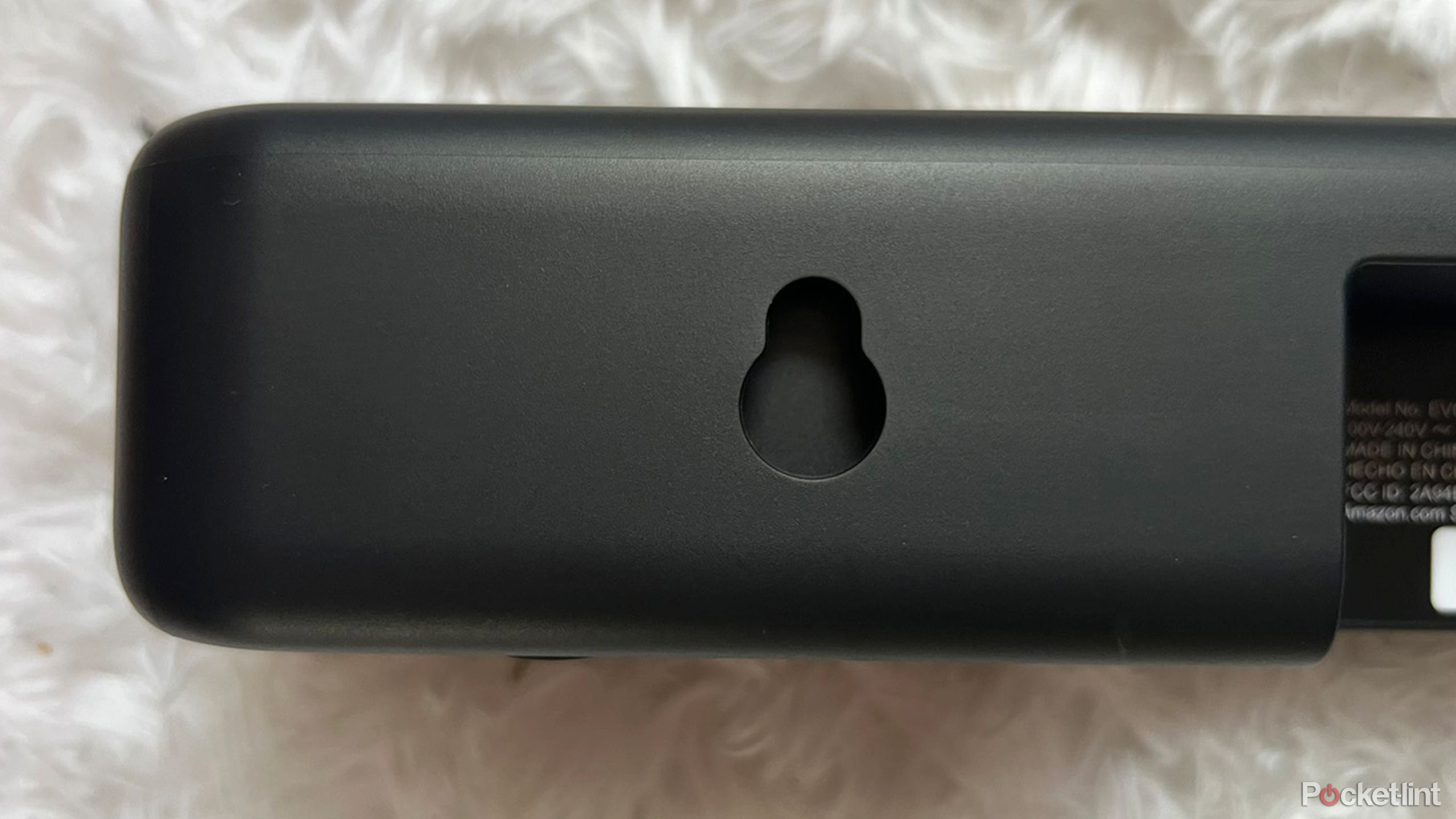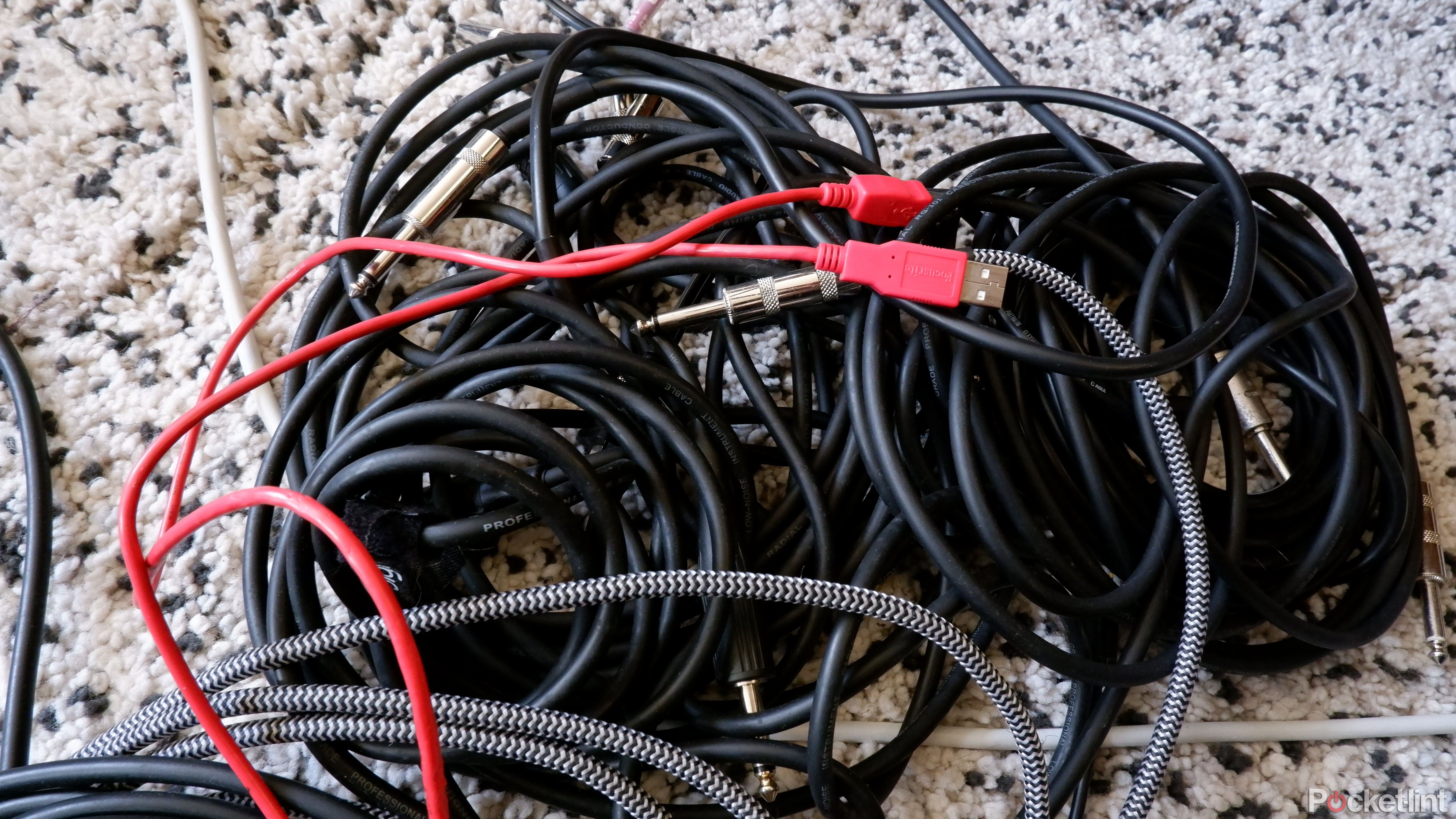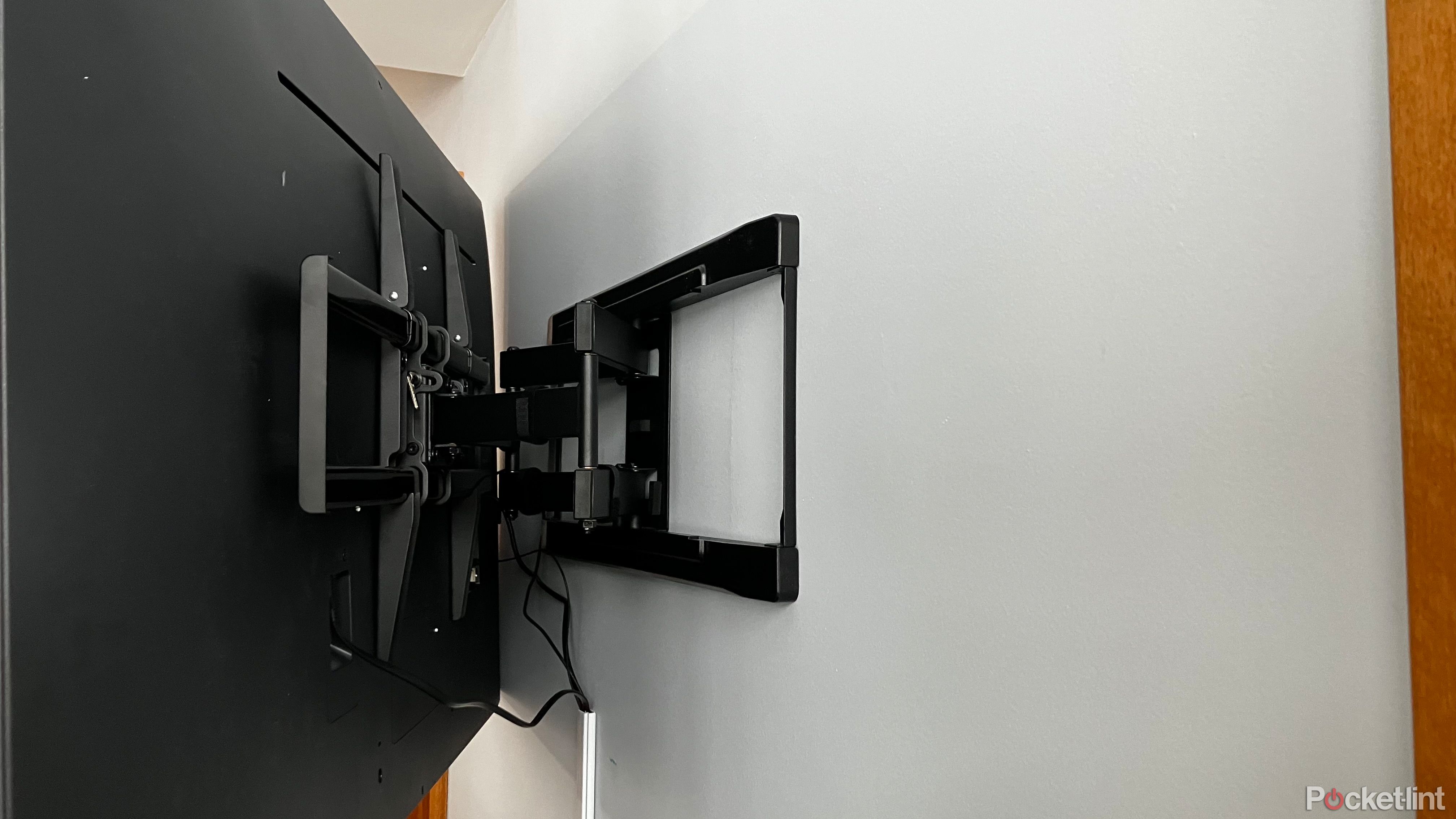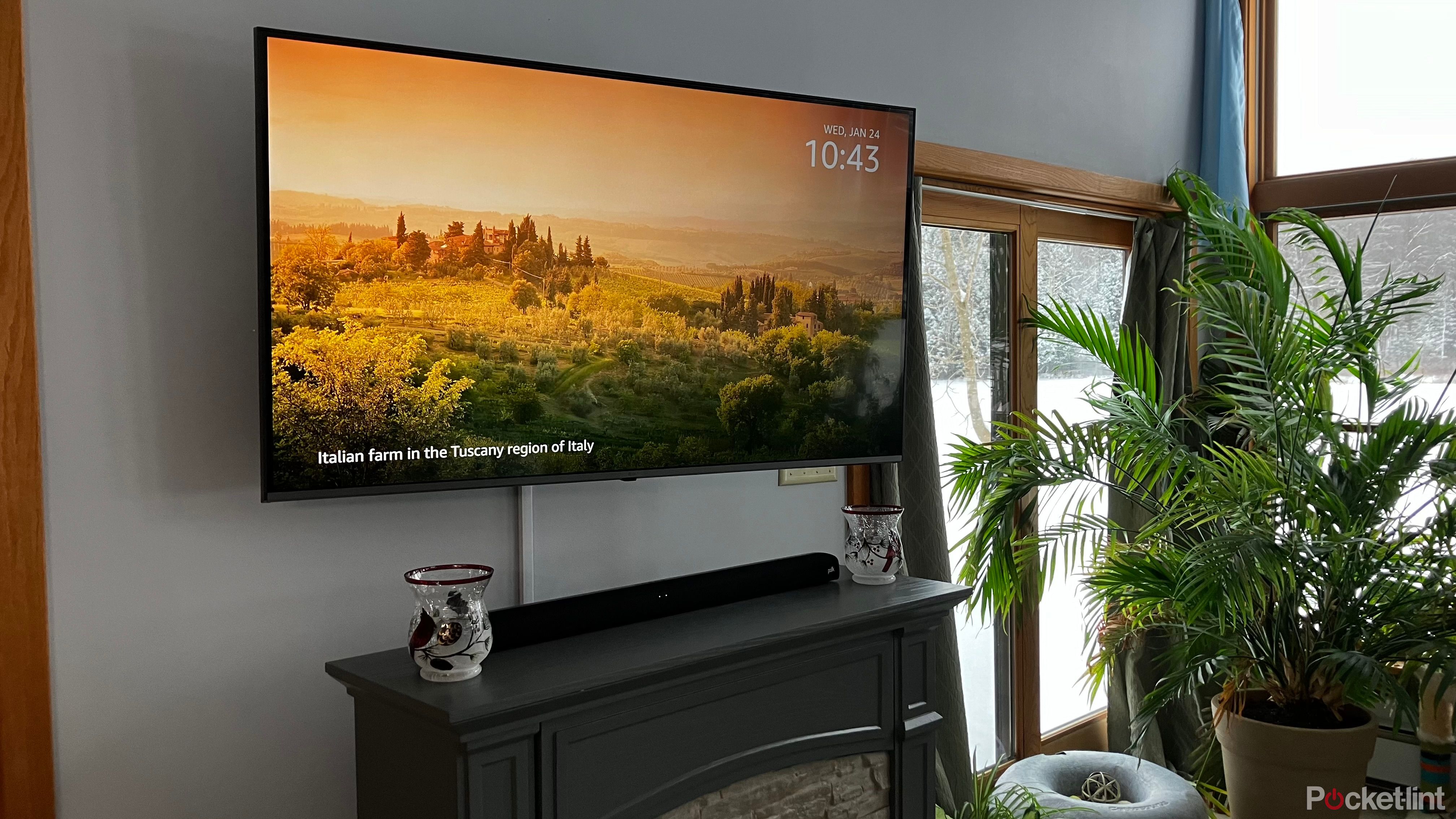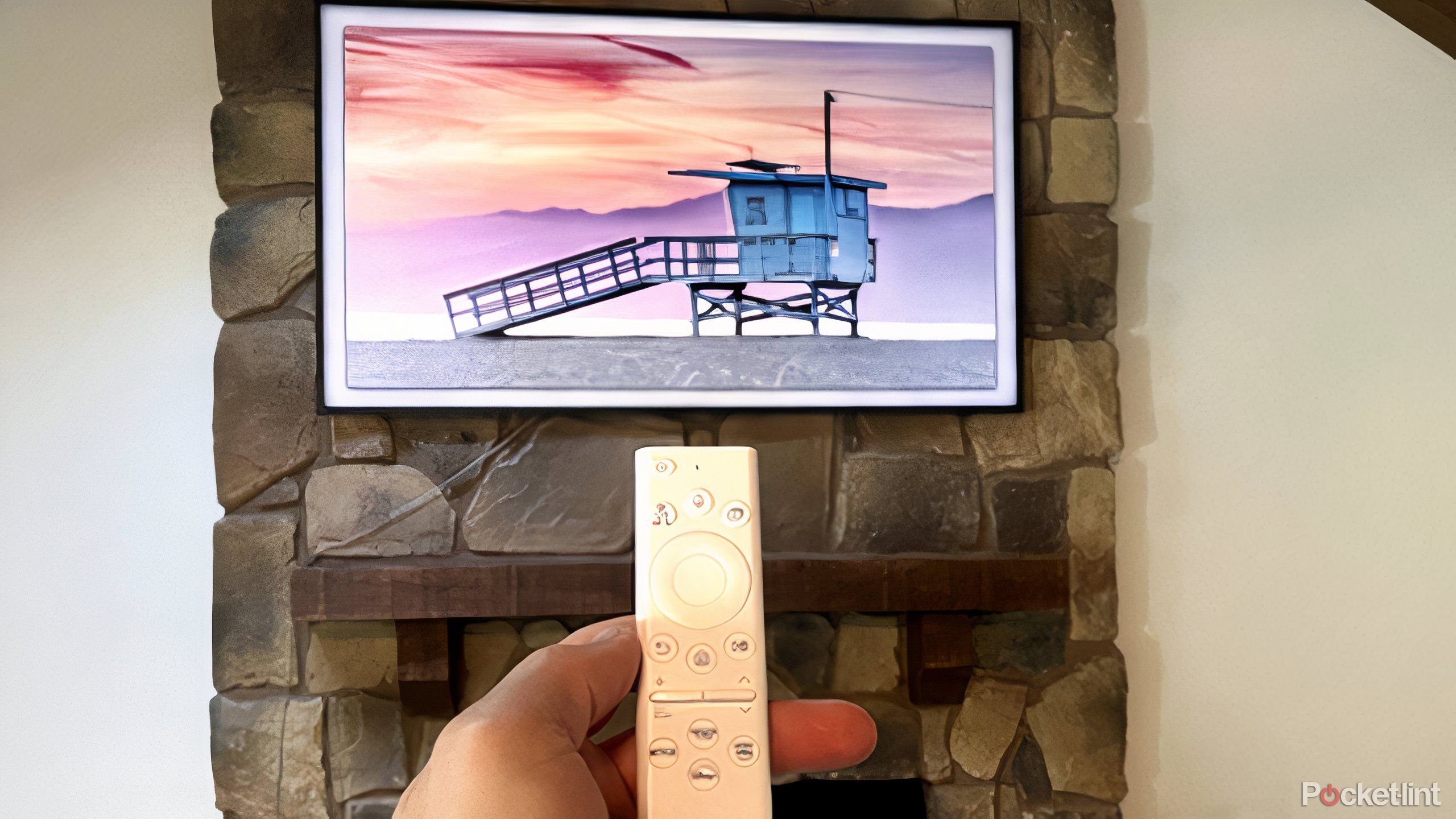Key Takeaways
- Mounting a TV can save space, provide better viewing angles, and keep electronics safe from children and pets.
- Installation barriers can be time-consuming, you may have to mount extra peripherals, and cable management may be challenging.
- Consider the time, money, and tools needed before wall-mounting a TV, as it may be an absolute must in certain situations.
I’ve been covering smart TVs for years, and a recurring theme in press photos these days is wall mounts. Sometimes mounts seem like the new default — you can even buy sets like the Samsung Frame, a TV specifically designed to blend in as wall art. All of this makes sense from a marketing perspective, since mounting looks inherently slick when you do it right.
Does it make sense to mount a TV on your own wall, however? There are advantages and disadvantages, some of which depend on the layout and even materials in your home.
Related
Best soundbar: Expert tested and reviewed
Dolby Atmos, app control, and more from top brands like Bose, Samsung and Sennheiser.
What are the advantages of mounting a TV?
Saving space in small rooms
This is the most obvious one. With housing costs being high, many people live in small homes if they’re still not renting an apartment. Mounting a TV can free up a sizable chunk of floor space, be it for extra storage or improving foot traffic. If you’ve got a VR headset or a small child, that’s extra room for play.
Mounting a TV can free up a sizable chunk of floor space.
Even if you do have a bigger budget, you want to mount a TV if it’s in their bedroom or a garage gym. There’s rarely much flexibility in those environments, and having to dodge a TV every time you want to change clothes or use the squat rack can be annoying.
Better viewing angles
Some people have a tendency to mount their TVs unreasonably high, but mounts do at least give you a choice in viewing angles. In some rooms that can mean not just high or low, but in corners where an entertainment center wouldn’t fit. It’s easy to find pivoting mounts, too, so you can potentially make adjustments on the fly — say if window reflections are ruining your Lord of the Rings marathon. Fixed brackets tend to be preferable for the largest TVs.
In spaces like gyms and kitchens, there’s often no choice but to use a mount. Yes, you can find TVs that are small enough to fit on a kitchen counter, but appliances and food prep are a better use of that surface.
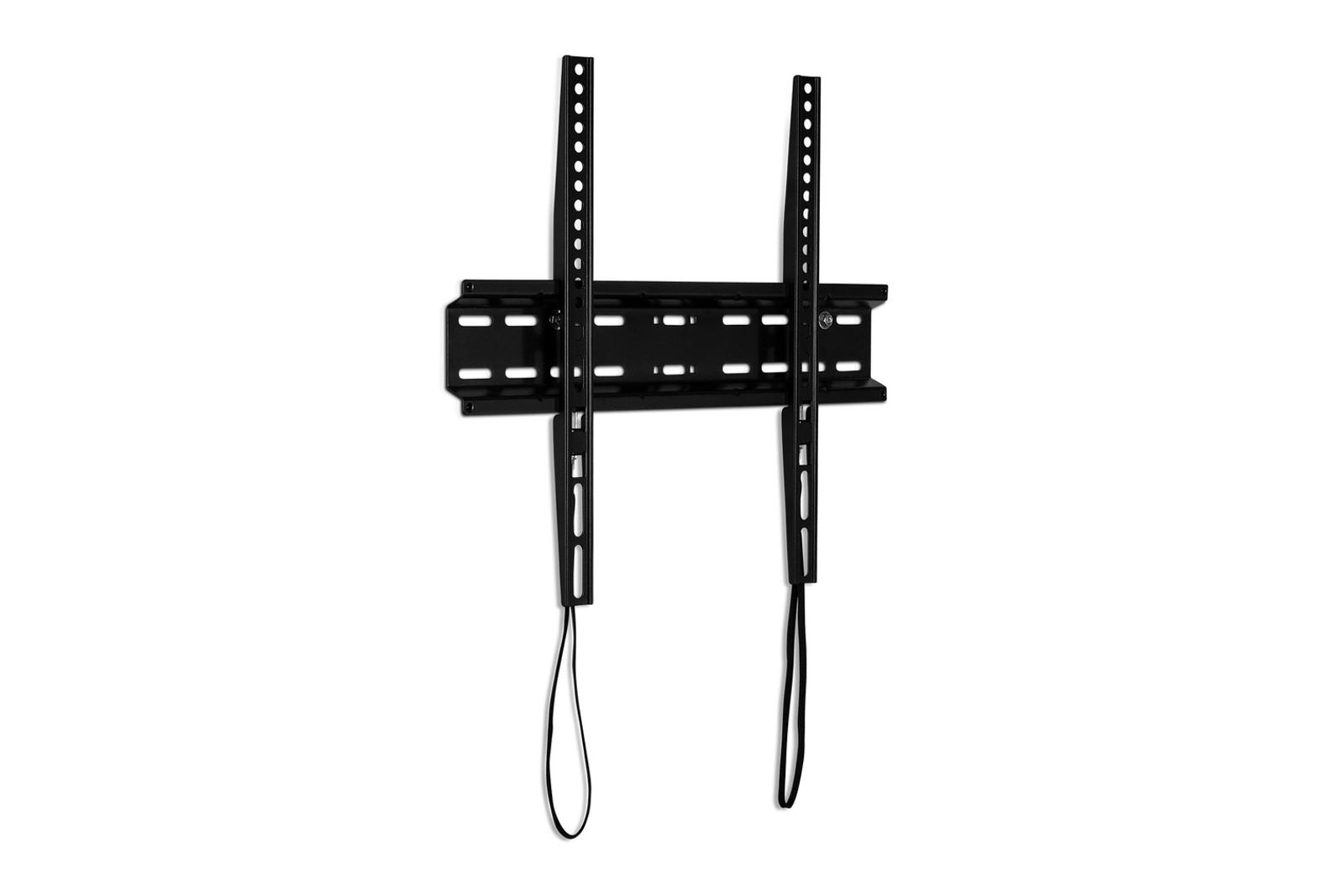
Related
Best fixed TV wall mounts: Excellent low-profile brackets to achieve a flush flatscreen
Ditch the TV stand and free up space by mounting your TV onto the wall with a sturdy, fixed bracket.
Keeping electronics safe
Before having a child or adopting a pet, it’s easy to forget that you won’t be able to leave all your electronics at ground level. Toddlers like to play with buttons and screens, and dogs and cats tend to chew on cables. Creatures of all kinds may be prone to smashing a TV or knocking it off its stand if they get rambunctious.
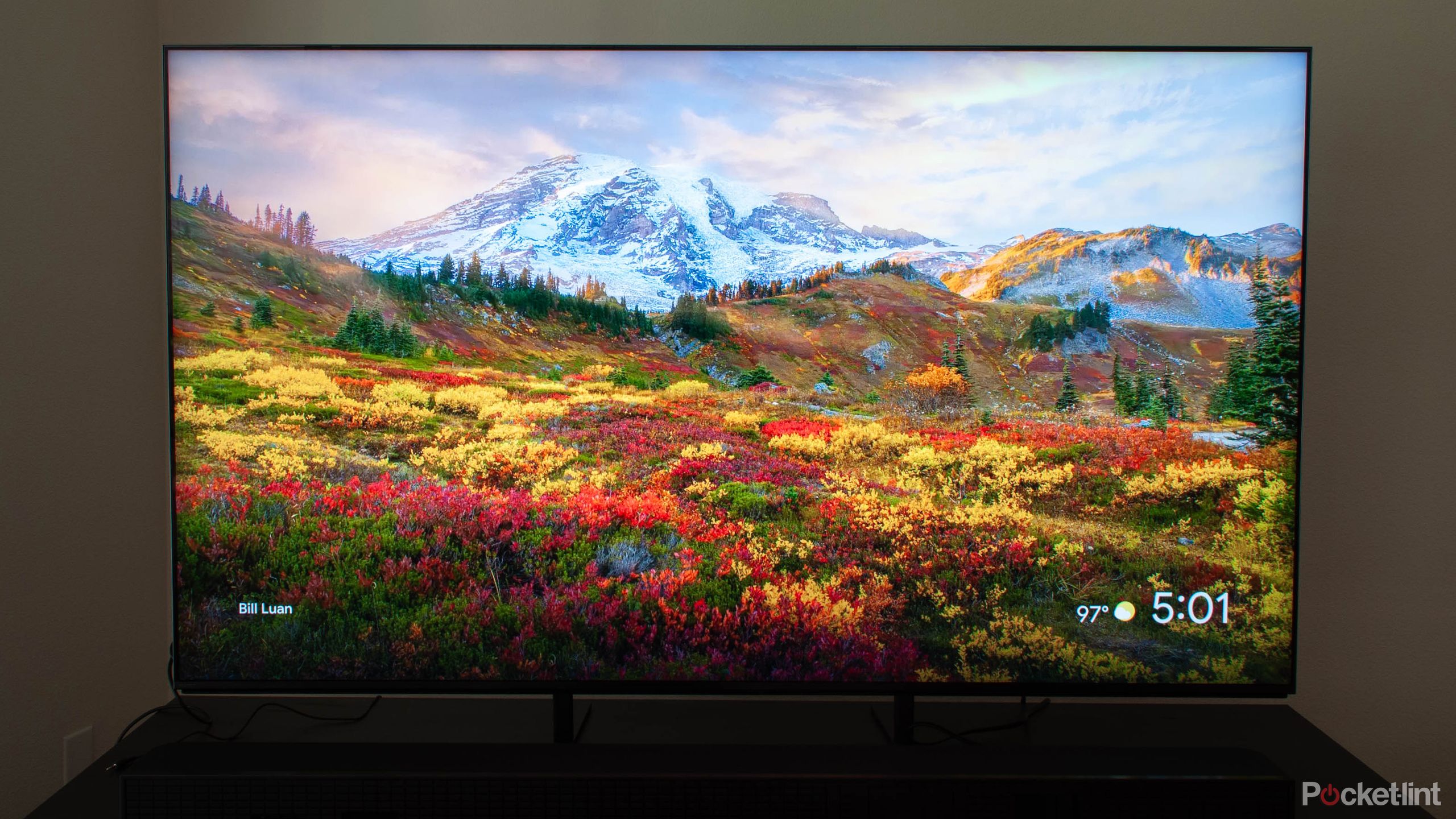
Related
The Sony BRAVIA 9 made watching movies in broad daylight a breeze
Sony shows yet again why they have built a sterling reputation for display technology and quality television with the new flagship Sony BRAVIA 9.
Mounting your TV is one way of solving this threat, although if you go that route, you’re going to have to go all the way — mounting any speakers, and possibly all your cables and other peripherals too, if they can’t be locked away in a cabinet.
What are the disadvantages of mounting a TV?
Installation barriers and hassles
When mounting a TV, it’s crucial to anchor it as securely as possible. That means locating wall studs, drilling holes, and hoping you’ve got both the mount and TV aligned perfectly at the end of the process. A bad angle will be instantly distracting and force you to redo the procedure, which can take a surprising amount of time even if you get it right the first time — possibly a couple of hours in the case of bigger screens. Concrete walls could be a major obstacle.
It can take a surprising amount of time to mount bigger TVs.
You may end up mounting more than just your TV. When you’ve got your TV off the ground, it often makes sense to mount a soundbar or speaker pair too if there isn’t a convenient shelf. If you’re using an add-on console or media streamer, you’re going to have to find a home for it one way or another.
Cable and power management
When a TV is sitting on top of an entertainment center, cables are often relatively easy to manage. The moment you move a TV to a wall, however, you’re going to be stringing unsightly cables around, even if it’s just for power. External speakers, consoles, and media streamers just complicate the situation further. You may need to invest in ways of concealing or at least bundling wires.
Power sources can be a problem too. Most AC sockets are located near the floor, so what might seem like an ideal location for your TV could prove to be impractical without a solution for snaking power cables around your walls.
Accessing audio, video, and data ports
Mounted TVs can be a nightmare when you need to access ports. You may not be able to pull your TV out far enough to work comfortably, if your mount allows movement at all. I’d advise against mounting if you’re regularly switching between multiple external devices, such as game consoles, unless perhaps you’re willing to spend on something like a receiver or HDMI switch.
One way of mitigating this issue is by choosing a TV with ports along the side, rather than on the back. That’s something people often forget about when shopping.
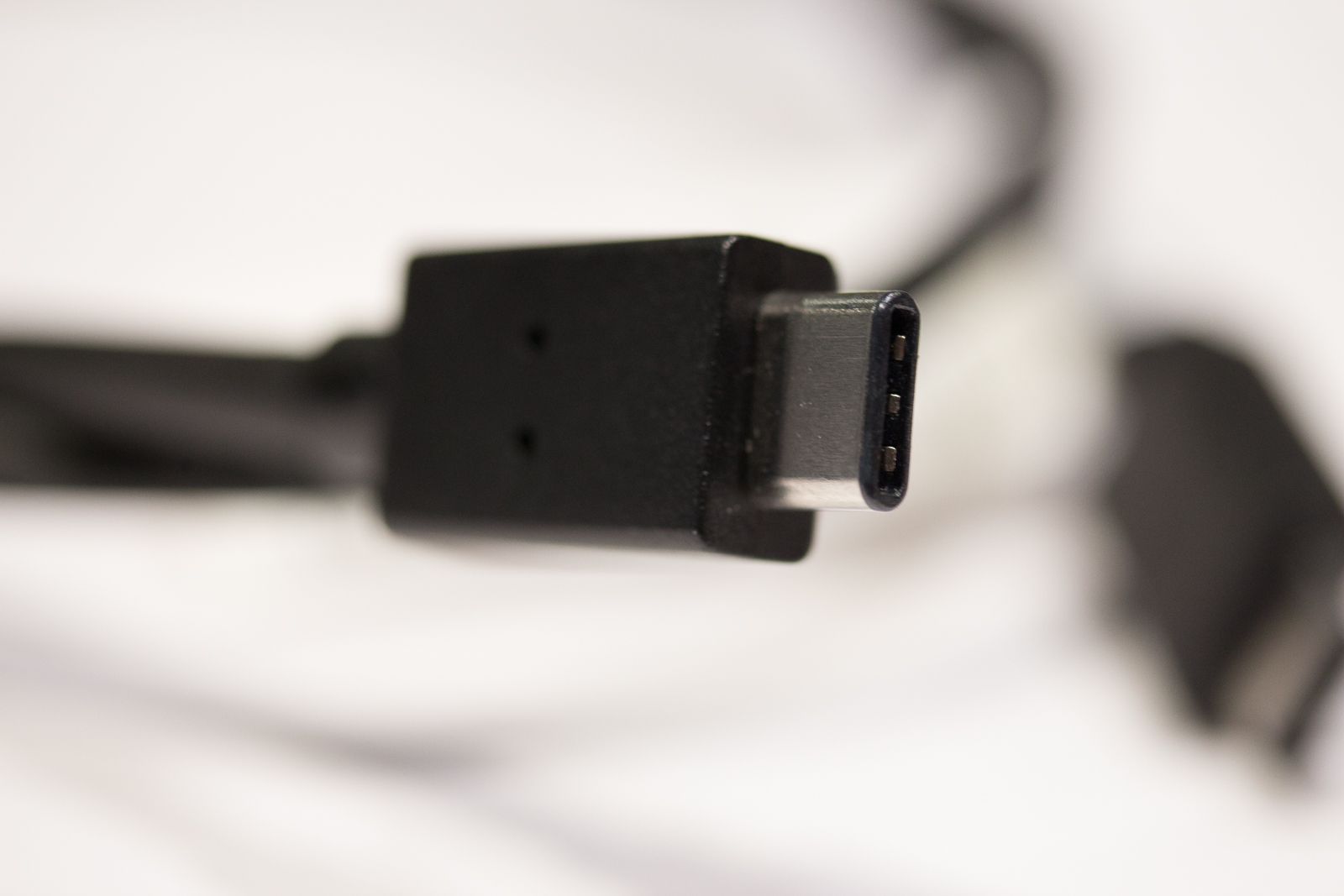
Related
Best USB to HDMI cables: Reliable adapters and connectors to sync your devices
These cleaver adapters and cables work across the most common USB varieties to easily link up your gadgets.
Acoustic issues with internal speakers
A TV’s internal speakers are typically configured with the idea that they’ve got several inches of clearance. That gap disappears when you mount a set, potentially resulting in disappointing audio, especially if the wall, TV, and/or mount starts vibrating.
The good news is that some TVs have software settings that let you compensate for wall acoustics. If they’re missing or don’t satisfy you, though, expect to invest in an external audio system, even if it’s just a basic soundbar from Target or Walmart.
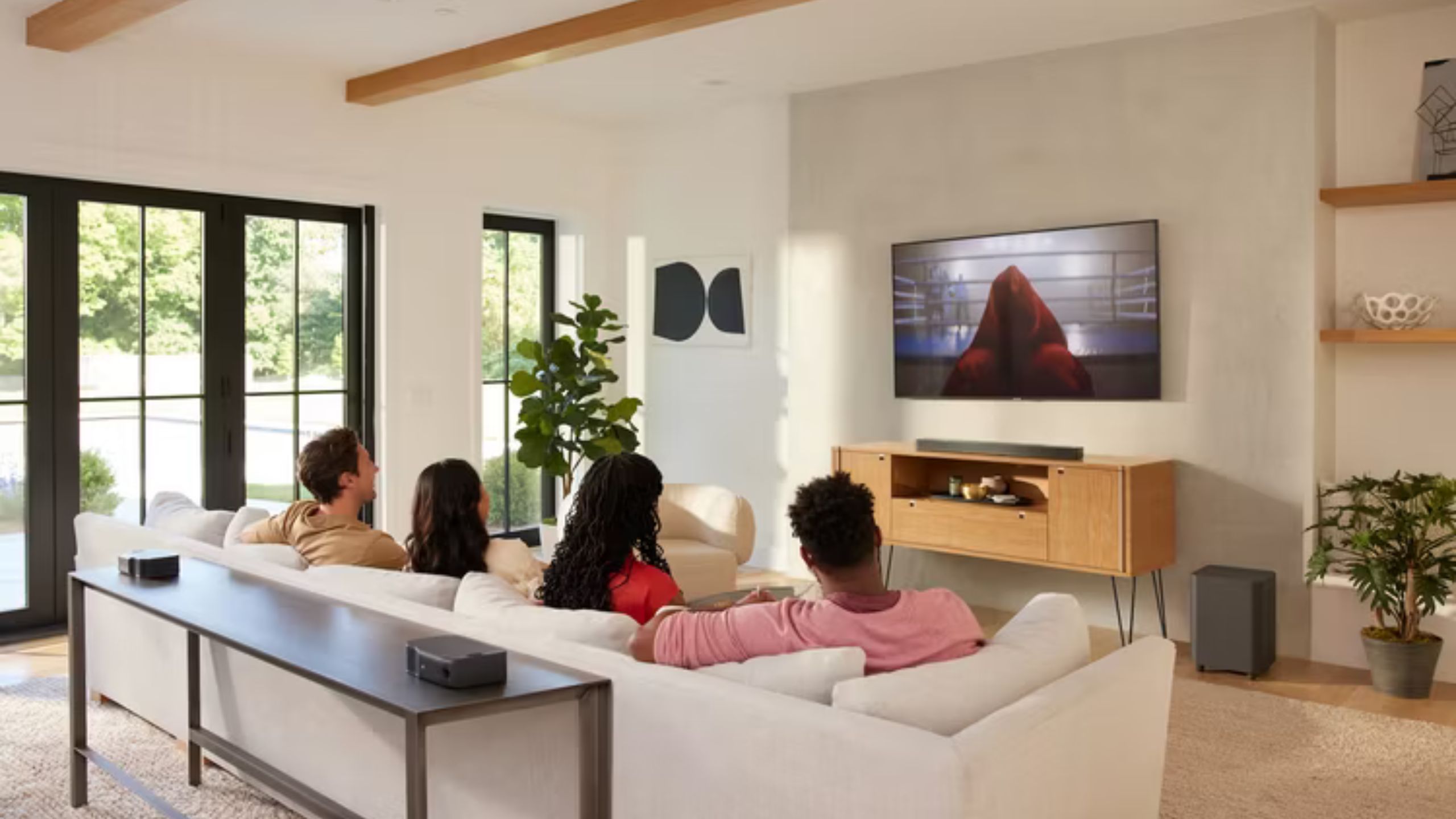
Related
Best Dolby Atmos speakers: Spatial audio for your home
Turn your living room into a home theater with these surround sound systems.
Should you wall-mount your TV?
It might be time to make a checklist
If you’re prepared for the time, money, and tools needed to mount a TV, and a room is accommodating, there’s no reason why not. In some situations, mounting a TV may be an absolute must — there’s no sense buying a 65-inch OLED if it’s going to be covered in fingerprints or shatter on the ground.
When I’ve got the freedom to choose between mounting and using an entertainment center, my own preference is the latter.
When I’ve got the freedom to choose between mounting and using an entertainment center, my own preference is the latter. It tends to solve problems with ports, cables, and power, and there’s another benefit I haven’t mentioned yet — easier moving and replacements. It takes some time and care to take a TV off a mount, and an equal amount to put a new one on. When you move out of a house, you may be expected to leave a mount behind, forcing you to buy a new one when you get to your next location.
Trending Products

Cooler Master MasterBox Q300L Micro-ATX Tower with Magnetic Design Dust Filter, Transparent Acrylic Side Panel…

ASUS TUF Gaming GT301 ZAKU II Edition ATX mid-Tower Compact case with Tempered Glass Side Panel, Honeycomb Front Panel…

ASUS TUF Gaming GT501 Mid-Tower Computer Case for up to EATX Motherboards with USB 3.0 Front Panel Cases GT501/GRY/WITH…

be quiet! Pure Base 500DX Black, Mid Tower ATX case, ARGB, 3 pre-installed Pure Wings 2, BGW37, tempered glass window

ASUS ROG Strix Helios GX601 White Edition RGB Mid-Tower Computer Case for ATX/EATX Motherboards with tempered glass…


